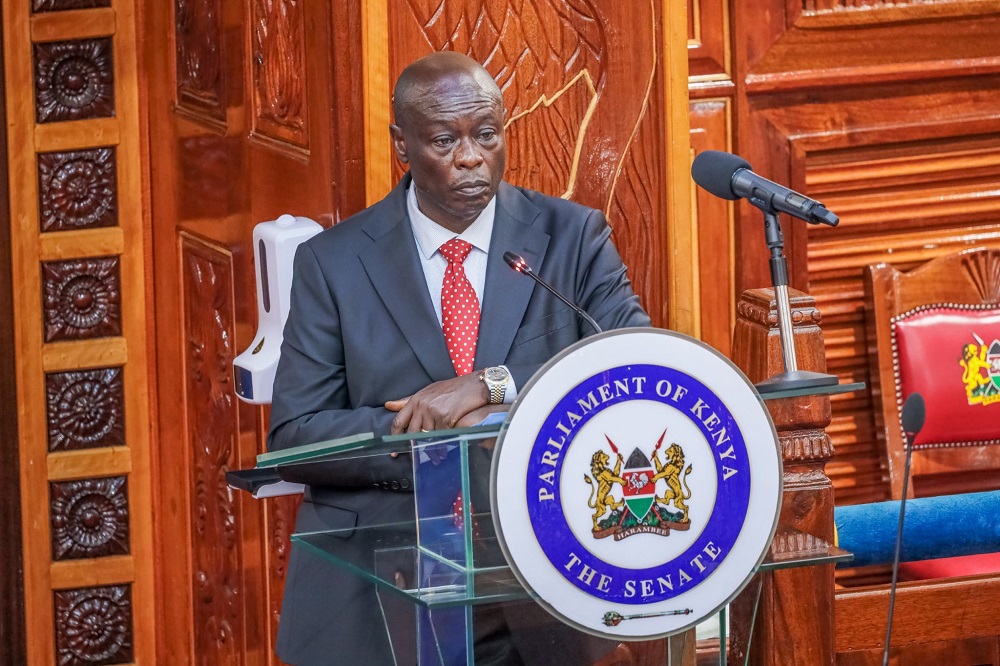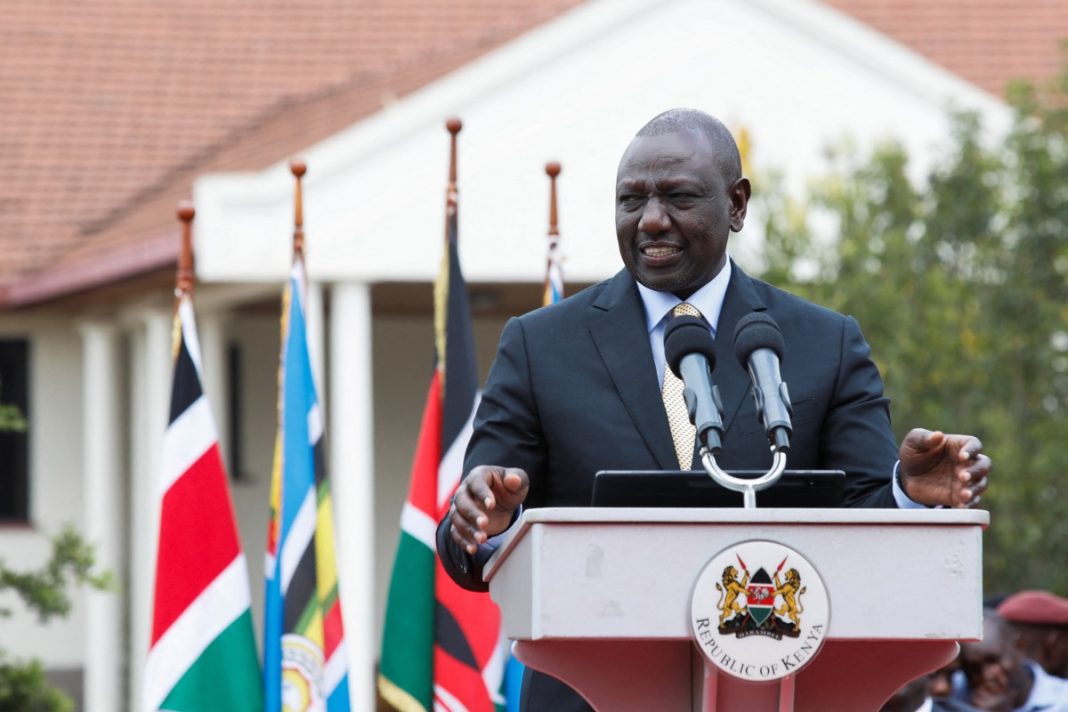NAIROBI, Kenya — In a dramatic turn of events, Kenya’s parliament on Friday, October 18, 2024, unanimously approved President William Ruto’s nomination of Interior Minister Kithure Kindiki to replace impeached Deputy President Rigathi Gachagua, only for the High Court to block the appointment just minutes later.
The political shake-up has gripped the nation, with Gachagua’s removal marking the first time a deputy president has been impeached under Kenya’s 2010 constitution.
The Senate found him guilty of multiple charges, including inciting ethnic division and threatening the judiciary — accusations Gachagua has denied and vowed to contest in court.
Kindiki, a 52-year-old political heavyweight and academic, was swiftly nominated to fill the position as Ruto moves to shore up his authority in the wake of anti-government protests that have posed the biggest challenge to his presidency since taking office two years ago.

However, in a stunning development, the High Court in Nairobi issued an injunction suspending the process of appointing Kindiki, following a legal challenge from Gachagua’s team.
The court ruled that the petition raised “monumental constitutional issues,” halting Kindiki’s swearing-in until October 24, when a judicial bench will hear the case.
The court’s decision came shortly after Kindiki’s appointment was published in the official government gazette, adding to the confusion over the next steps.
As both sides await the court’s ruling, it is unclear how the political process will proceed.
Gachagua’s Impeachment
The Senate’s vote on Thursday night found Gachagua, 59, guilty of five of the 11 charges levied against him, leading to his impeachment.
Gachagua, who had been a close ally of President Ruto, played a key role in securing support from the Mount Kenya region in the closely contested 2022 election.
But Gachagua’s relationship with Ruto has soured in recent months, culminating in accusations that he supported youth-led anti-government demonstrations that broke out in June.
He was also charged with “gross violation” of the constitution, including threats to judges and ethnic incitement. However, he was cleared of corruption and money laundering charges.
Despite his legal team’s appeal for more time, citing Gachagua’s ill health, the Senate pressed ahead with the impeachment vote.
Gachagua was absent from the proceedings, having been admitted to a hospital in Nairobi with severe chest pains.
His legal team walked out in protest when their request to delay the hearings was denied.
Dr. Dan Gikonyo, the chief cardiologist overseeing Gachagua’s care, told reporters that the deputy president was stable but would remain under observation for 72 hours.
Legal Challenges and Political Uncertainty
Gachagua’s legal team swiftly filed a case to challenge the impeachment, alleging that the process had been rushed and was unfair.
The High Court’s injunction to suspend Kindiki’s appointment has thrown the political process into disarray, with analysts suggesting that the legal battle could extend the uncertainty gripping the East African nation.
While Ruto has not publicly commented on the impeachment, Gachagua has suggested that his ouster could not have occurred without the president’s approval.
“The process could not have gone ahead without my boss’s blessing,” Gachagua said in a statement.
The political crisis comes as Kenya, regarded as one of the region’s more stable democracies, faces mounting internal challenges.
Large-scale protests over economic conditions and governance have tested Ruto’s government, with many viewing Gachagua’s impeachment as part of a broader power struggle within the ruling administration.
Kindiki, a key figure in Ruto’s government and also from the Mount Kenya region, has served as interior minister for more than two years.
His nomination is seen by some analysts as an attempt by Ruto to consolidate power in the wake of his falling out with Gachagua.
Future Implications
The political drama surrounding Gachagua’s impeachment and Kindiki’s stalled appointment has transfixed the country.
As Kenya waits for the court’s decision on October 24, questions remain about the potential fallout within Ruto’s administration and the long-term implications for the nation’s political stability.
Gachagua’s impeachment has already set a historical precedent, and how the situation unfolds could have significant consequences for Kenya’s political landscape in the months ahead.







